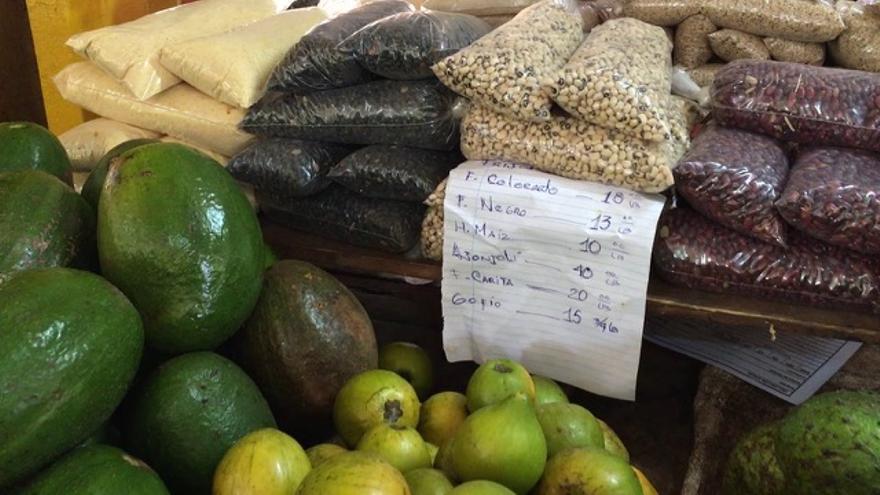
![]() 14ymedio, 27 June 2019 — Cuban president Miguel Díaz-Canel announced, on Thursday, a salary increase for workers in the state sector. A statement read on Television News detailed that the minimum wage on the island is set at 400 CUP per month, about 16 dollars, while the average salary reaches 1,067 CUP (roughly $42.70 US), an increase of 290 pesos compared to the previous year.
14ymedio, 27 June 2019 — Cuban president Miguel Díaz-Canel announced, on Thursday, a salary increase for workers in the state sector. A statement read on Television News detailed that the minimum wage on the island is set at 400 CUP per month, about 16 dollars, while the average salary reaches 1,067 CUP (roughly $42.70 US), an increase of 290 pesos compared to the previous year.
“This is not the final salary increase we are planning, but it is quite significant for the conditions we are in,” said Díaz-Canel, according to the official newspaper Granma. The direct beneficiaries of the increase in the minimum wage will be more than 1.4 million state workers and the measure will cost the State 7.5 billion pesos per year.
The sectors that will be favored are those related to the Central State Administration, the local organs of the People’s Power, and State organizations and associations, the statement clarifies.
For retirees, the minimum pension is maintained at 242 CUP (roughly $9.70 US), while the beneficiaries of social assistance will maintain their minimum pensions at 217 CUP per month (roughly $8.70 US).
The Minister of Finance and Prices, Meisi Bolaños Weiss, said state workers will pay taxes of 2.5% for those who earn monthly income up to 500 CUP and 5% for those who receive salaries above 500 CUP.
With the aim of “avoiding the inflationary effect of the measure,” the head of the branch explained that his ministry “will provide the necessary mechanisms throughout the economy to mitigate possible price increases.”
Díaz-Canel indicated that the ministries involved have to establish observation mechanisms to track prices and consumption; “This gives us time to rectify any element and prevent inflation.”
For his part, the Minister of Economy and Planning, Alejandro Gil Fernandez, announced several measures aimed at “a greater responsiveness to the needs of the population and the economy” to confront the US embargo.
Among the measures cited by Granma are the decentralization of pay for performance systems, eliminating administrative restrictions, as well as giving more power to the directors of state companies to approve worker payment systems. The head of the economy also called to prioritize piece rate payment and to tie salary increases to profits.
The president called to stimulate the sales of food, construction materials, tourist packages and the services of the Telecommunications Company of Cuba, Etecsa. Etecsa has been the target of intense demands by its customers to lower its prices. This coming Saturday there will be protests for fourth consecutive week under the hashtag #BajenLosPreciosDeInternet (Lower Internet Prices).
One of the principal popular complaints is the high cost of living. According to the economist Carmelo Mesa-Lago, Cubans’ purchasing power is only 60% of what it was in 1989, before the collapse of the Soviet Union, which supported the island with large subsidies.
The situation is even worse for those who receive pensions, because their real income has fallen by half compared to what they had before that crisis. According to a recent study by another Cuban expert, Pavel Vidal, the size of the Cuban economy has decreased compared to other countries in Latin America and the Caribbean.
Among the most significant wage increases in recent times was the one that benefited Public Health workers in 2014. At that time, increases of up to 178% were implemented that allowed certain medical professionals to earn a basic monthly salary of up to 1,600 CUP, equivalent to 64 dollars.
In 2016, the Ministry of Education decreed a selective salary increase between 200 and 250 CUP for those teachers whose classrooms had more students than the norm in primary education.
Last October, Ulises Guilarte de Nacimiento, general secretary of Cuba’s only legal union, the Central de Trabajadores de Cuba (CTC, or Cuban Workers Center), announced that the authorities were working on a general salary reform. “This issue is being addressed with the highest priority by the country’s management,” he said at the time.
In April of this year, during the sessions of the CTC Congress, salaries was one of the most addressed issues. With 4,482,700 workers working in the state sector at the end of 2018, the low economic income is a frequent reason for the exodus of professionals to self-employment.
The 14ymedio team is committed to serious journalism that reflects the reality of deep Cuba. Thank you for joining us on this long road. We invite you to continue supporting us, but this time by becoming a member of 14ymedio. Together we can continue to transform journalism in Cuba.
